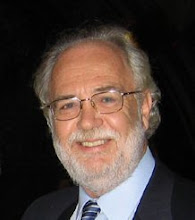This question has been raised on numerous occasions and few convincing arguments have been put forward that ICT makes much difference. There's a bit on ICT effectiveness here in Section 3 of Module 1.1 at the ICT4LT site:
http://www.ict4lt.org/en/en_mod1-1.htm#anchor158435
So I thought it was high time I raised this question again. Concrete evidence on the effectiveness of CALL is difficult to obtain. There is plenty of anecdotal evidence about the positive effects of CALL. Teachers often report on their students being "enthusiastic", "engaged", "motivated" and even "excited" in classes in which CALL is used, but are sceptical about measuring its effectiveness. See this summary (in Word format) of a discussion that took place in the MFL Resources forum in 2008:
http://www.ict4lt.org/en/ICT_Effectiveness.doc
Wednesday, 26 November 2008
Farewell to Lively by Google
Google plan to drop Lively on 31 December 2008, five months after it was launched. So, if you have a Lively room, use it for a final New Year’s Eve bash, take some screenshots and say bye, bye. I guess this is the way things are on the Web: if it doesn't catch on in a couple of months then drop it like a hot potato, especially in these troubled economic times.
The demise of Lively, along with many other websites, should remind us that it is unwise to build a teaching course around a website, unless it is your own – although you can't even guarantee that your own site will always be there. One of mine went down for three weeks in 2001 when my hosting service went bankrupt. I didn’t lose anything, however, as it was all backed up on my hard disk and on CD-ROM. I have links to over 1000 sites on the three websites that I maintain. The wastage rate averages 3%-5% per month – a phenomenon known as “linkrot”. The worst offenders are government and university websites; they are forever changing.
Lively was probably not an appropriate name. No one ever visited my room unless it was pre-arranged, and I am not aware of Lively catching on in education in the same way as Second Life. Second Life educational locations are springing up like mushrooms these days, and many of them are dedicated to language learning. I ran a training course on Second Life in September, and it worked quite well. A colleague ran a course on Lively for the same participants on the same day. Participants could see more potential in using Second Life.
What I like about Second Life is that I meet someone there by chance almost every day. I maintain the EUROCALL HQ there on one of the EduNation islands, and people often just drop in for a chat - three people were there between 6 and 8 pm yesterday evening, 25 November 2008. I also take part in trivia quizzes and I go to live performances of bands, e.g. Irish groups in the Blarney Stone pub in SL, and fund-raising concerts for cancer research. I have won a bit of money by taking part in quizzes.
The demise of Lively, along with many other websites, should remind us that it is unwise to build a teaching course around a website, unless it is your own – although you can't even guarantee that your own site will always be there. One of mine went down for three weeks in 2001 when my hosting service went bankrupt. I didn’t lose anything, however, as it was all backed up on my hard disk and on CD-ROM. I have links to over 1000 sites on the three websites that I maintain. The wastage rate averages 3%-5% per month – a phenomenon known as “linkrot”. The worst offenders are government and university websites; they are forever changing.
Lively was probably not an appropriate name. No one ever visited my room unless it was pre-arranged, and I am not aware of Lively catching on in education in the same way as Second Life. Second Life educational locations are springing up like mushrooms these days, and many of them are dedicated to language learning. I ran a training course on Second Life in September, and it worked quite well. A colleague ran a course on Lively for the same participants on the same day. Participants could see more potential in using Second Life.
What I like about Second Life is that I meet someone there by chance almost every day. I maintain the EUROCALL HQ there on one of the EduNation islands, and people often just drop in for a chat - three people were there between 6 and 8 pm yesterday evening, 25 November 2008. I also take part in trivia quizzes and I go to live performances of bands, e.g. Irish groups in the Blarney Stone pub in SL, and fund-raising concerts for cancer research. I have won a bit of money by taking part in quizzes.
Subscribe to:
Comments (Atom)




